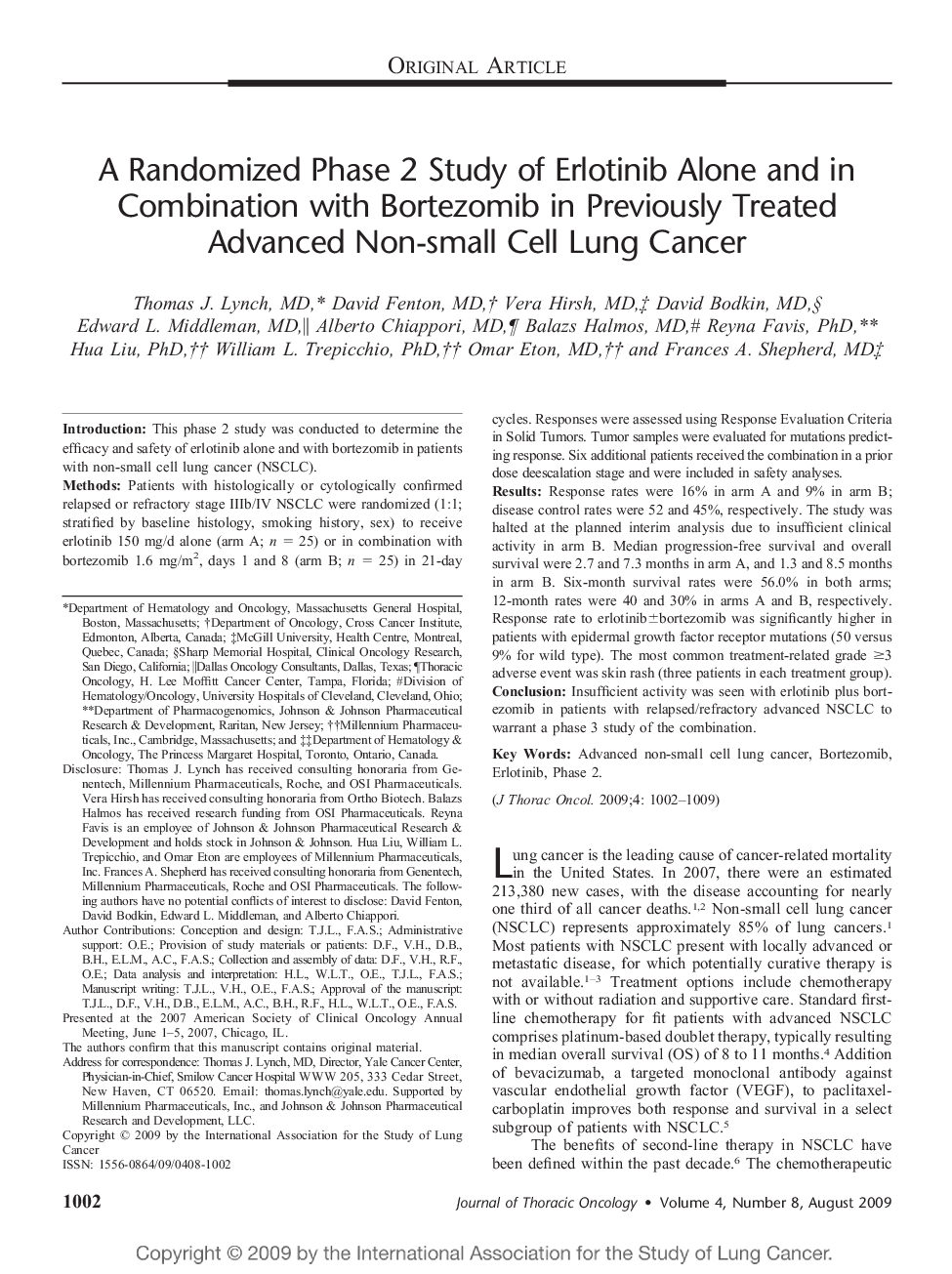| Article ID | Journal | Published Year | Pages | File Type |
|---|---|---|---|---|
| 3991238 | Journal of Thoracic Oncology | 2009 | 8 Pages |
Introduction:This phase 2 study was conducted to determine the efficacy and safety of erlotinib alone and with bortezomib in patients with non-small cell lung cancer (NSCLC).Methods:Patients with histologically or cytologically confirmed relapsed or refractory stage IIIb/IV NSCLC were randomized (1:1; stratified by baseline histology, smoking history, sex) to receive erlotinib 150 mg/d alone (arm A; n = 25) or in combination with bortezomib 1.6 mg/m2, days 1 and 8 (arm B; n = 25) in 21-day cycles. Responses were assessed using Response Evaluation Criteria in Solid Tumors. Tumor samples were evaluated for mutations predicting response. Six additional patients received the combination in a prior dose deescalation stage and were included in safety analyses.Results:Response rates were 16% in arm A and 9% in arm B; disease control rates were 52 and 45%, respectively. The study was halted at the planned interim analysis due to insufficient clinical activity in arm B. Median progression-free survival and overall survival were 2.7 and 7.3 months in arm A, and 1.3 and 8.5 months in arm B. Six-month survival rates were 56.0% in both arms; 12-month rates were 40 and 30% in arms A and B, respectively. Response rate to erlotinib±bortezomib was significantly higher in patients with epidermal growth factor receptor mutations (50 versus 9% for wild type). The most common treatment-related grade ≥3 adverse event was skin rash (three patients in each treatment group).Conclusion:Insufficient activity was seen with erlotinib plus bortezomib in patients with relapsed/refractory advanced NSCLC to warrant a phase 3 study of the combination.
